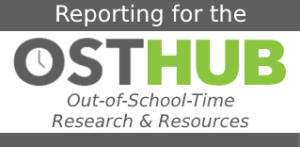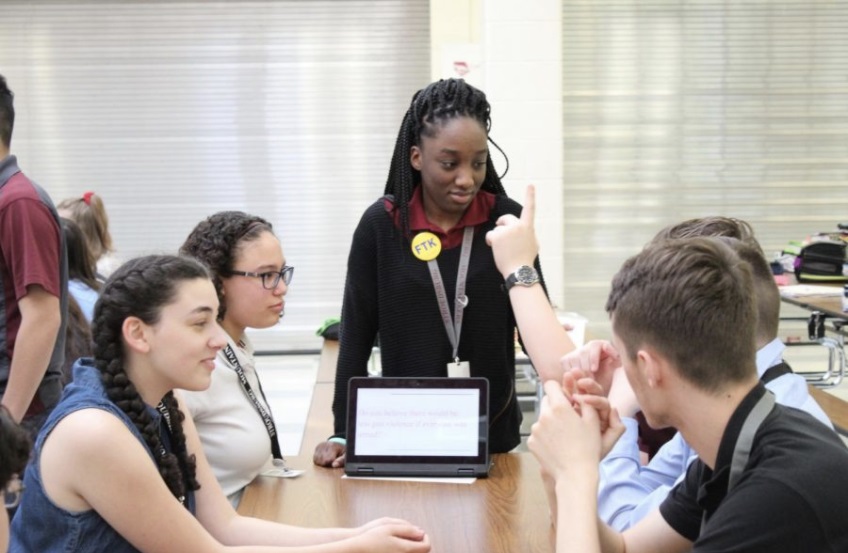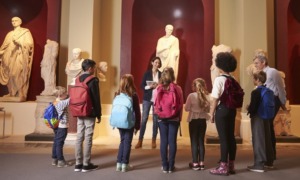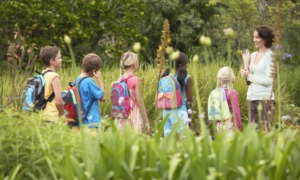As partisan tensions over America’s fraught racial history reshape classrooms into ideological battlegrounds, community youth organizations are finding new, alternative avenues for students to engage in the challenging discussions their teachers may feel unsupported or unequipped to moderate.
More than half of U.S. states have introduced legislation in recent months restricting how teachers can discuss “divisive” topics like racism and sexism. Eight of those states have passed laws limiting the teaching of these concepts, and another four have adopted similar rules via their state Boards of Education.
While these measures have drawn intense criticism from some educators who see the ability to navigate diverse viewpoints as a key civic and social-emotional skill, the question of whether or not to bring politics into the classroom is nothing new.
 When Amy Anderson, executive director of the Center for Youth Voice at the Minnesota-based YMCA of the North, tried in 2016 to engage schools in a statewide mock election project, she found that fear of backlash from parents and school administrations left many teachers feeling like banning controversial discussions was the only safe option.
When Amy Anderson, executive director of the Center for Youth Voice at the Minnesota-based YMCA of the North, tried in 2016 to engage schools in a statewide mock election project, she found that fear of backlash from parents and school administrations left many teachers feeling like banning controversial discussions was the only safe option.
“Consistently, what I heard was, ‘I am not willing to take the risk of the kids getting into fights,’ or, you know, ‘devolving into a terrible situation because kids can’t handle it,’” Anderson said. “‘Nor am I willing to take the risk of the parents calling me and yelling at me because I’m trying to, you know, indoctrinate their kids or I’m trying to pressure them or make them think certain things on issues.’”
Seeing what she called a “missed opportunity” for teachers to leverage students’ interest in political issues into an opportunity to better understand their peers, Anderson founded Respectful Conversations in Schools, a program now administered by the YMCA.
The key, she said, is uplifting students’ own lived experiences and teaching them to listen to understand rather than listen to respond.
Anderson lamented that society has taught children to think about issues as “black and white” with a “winner and a loser.”
Instead of asking students to deliberate over abstract facts or statistics, Anderson asks them to consider three questions: What in your lived experience affects how you think about this topic? What are your hopes and concerns when it comes to this topic? And what questions of genuine interest do you have?
For Taha Vahanvaty, a recent graduate of Stroudsburg High School in eastern Pennsylvania and the founder of The Acceptance Project, training students to center their own experiences in a conversation is not just fundamental to achieving a meaningful dialogue; it also makes challenging conversations more accessible to a wider range of young people.
“I’m going to ask students, ‘Do you have anybody that you love that you believe is misogynistic, racist, homophobic? And does that impact your ability to love them?’”Vahanvaty said.
Vahanvaty founded The Acceptance Project in eighth grade as a school club where he and his peers could break out of their ideological bubbles. Since then, it’s grown into an organization that trains students all over Pennsylvania in how to facilitate civil dialogues within their own school chapters. The best way to do that, he said, is to take the focus off of the national and put it onto the personal.
“Not only do we want racial diversity and cultural diversity, we want thought diversity and intellectual diversity,” Vahanvaty said. “And so what that means is putting a pin in the national lens of these dialogue topics, and figuring out how we can tie it into students’ lived experiences.”
If he’s leading a conversation exploring privilege, for example, Vahanvaty said he would direct the discussion away from nuanced current events, because if students aren’t well informed on the topic, it can be a barrier to entering the discussion.
“Instead, I’m going to ask students questions along the lines of, ‘Do you have anybody that you love that you believe is misogynistic, racist, homophobic? And does that impact your ability to love them?’”
At some organizations, students have taken a step beyond discussions with their peers and are leading the way for adults.
In Kansas, the 4-H youth leadership program Community Conversations trains students to facilitate intergenerational discussions in their own communities around issues of local concern.
Aliah Mestrovich Seay, who leads the program as a 4-H youth development specialist with Kansas State Research and Extension, said it starts with bolstering students’ interpersonal abilities: Strengthening their active listening skills; cultivating an understanding of their own biases, power and privilege; and extending empathy to those they may not relate to closely.
From there, students get a primer in facilitation, including how different communication styles might affect the conversation, how to respect time limits and thought diversity, and how to problem solve creatively.
The goal, she said, is not just to foster communication skills, but to cultivate engaged citizenship and find solutions to community problems.
In its two-year existence, Community Conversations has involved about 750 people all around Kansas in its youth-led discussions on topics ranging from racial justice in policing to the best strategies for combating the coronavirus.
“I believe that these youth are on the right track,” Mestrovich Seay said, “They’re not afraid of talking about these issues and they have tools to be able to do that in a way that allows for more civil discourse to happen, even if there are differences in opinion.”































